
Blog - Federal Policy
517 posts
How Tax Decisions in 2025 Can Advance Racial Justice
October 30, 2024 • By Brakeyshia Samms, Jon Whiten
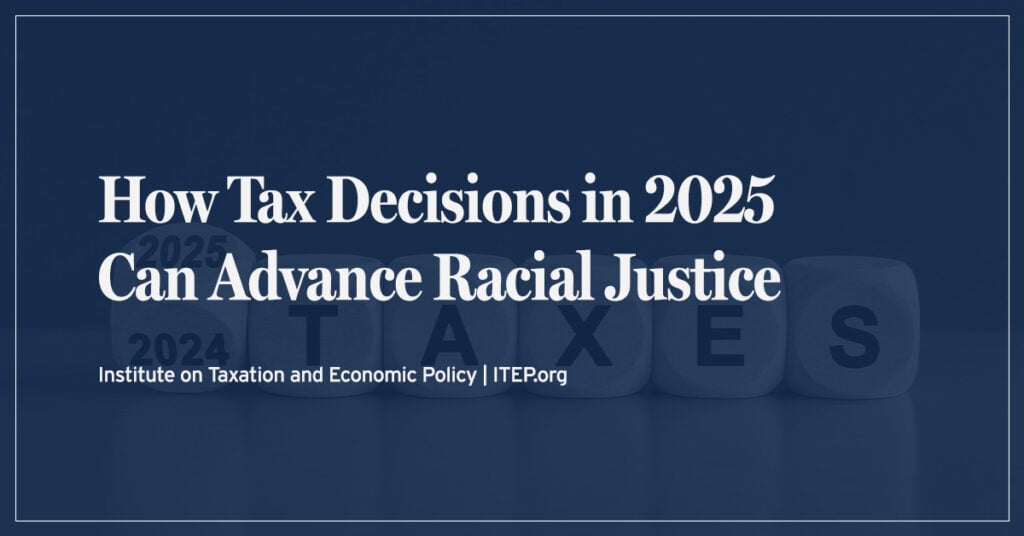
In the coming 14 months, federal lawmakers should address longstanding issues of racism in the tax code. With a presidential election this fall and many provisions of 2017’s Trump tax law expiring at the end of 2025, the debate over tax policy and economic fairness is in full swing.
How Would the Harris and Trump Tax Plans Affect Different Income Groups?
October 23, 2024 • By Jon Whiten
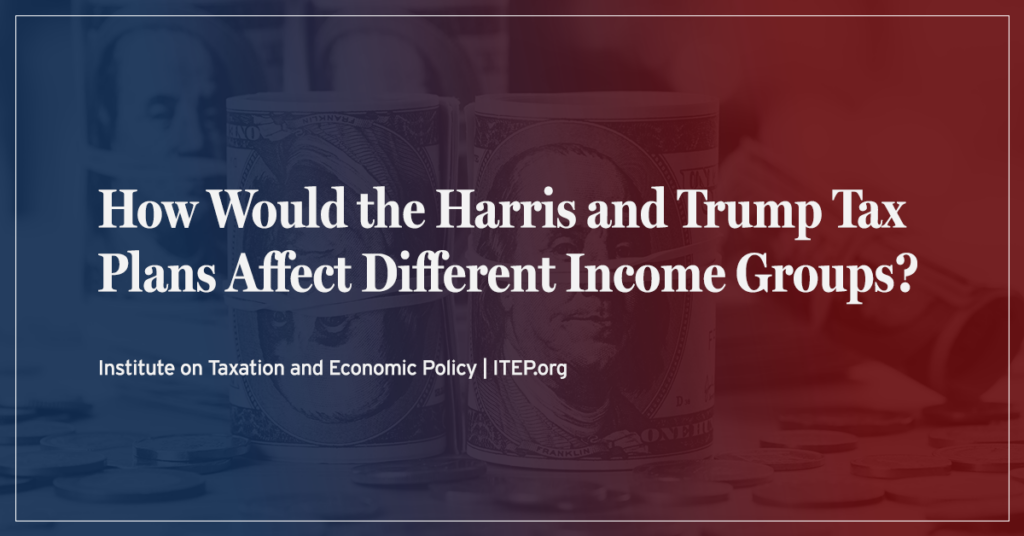
Presidential candidates Kamala Harris and Donald Trump have put forward a wide range of different tax proposals during this year’s campaign. We have now fully analyzed the distributional impacts of the major proposals of both Vice President Harris and former President Trump in separate analyses. In all, the tax proposals announced by Harris would, on average, lead to a tax cut for all income groups except the richest 1 percent of Americans, while the proposals announced by Trump would, on average, lead to a tax increase for all income groups except the richest 5 percent of Americans.
Fifteen Companies Each Avoided More than $1 Billion in Taxes from a Single Trump Tax Cut
October 10, 2024 • By Joe Hughes, Spandan Marasini
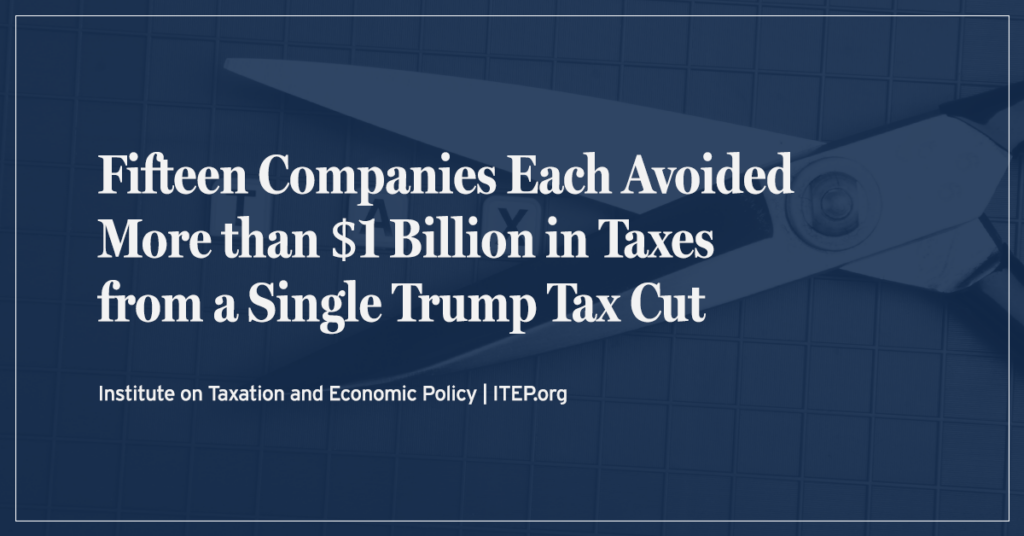
The deduction for Foreign-Derived Intangible Income (FDII), one of the tax cuts included in former President Trump’s signature 2017 tax law, provides a lower effective tax rate on income earned from intangible assets, such as patents, trademarks, and other forms of intellectual property. Since the law went into effect in 2018, 15 corporations have separately reported more than $1 billion in tax benefits. Alphabet (the parent company of Google) reported the most, at more than $11 billion in tax breaks from 2018 to 2023. Other beneficiaries include large tech firms such as Meta, Microsoft, Intel, and Qualcomm.
Voucher Boondoggle: House Advances Plan to Give the Wealthy $1.20 for Every $1 They Steer to Private K-12 Schools
September 12, 2024 • By Carl Davis
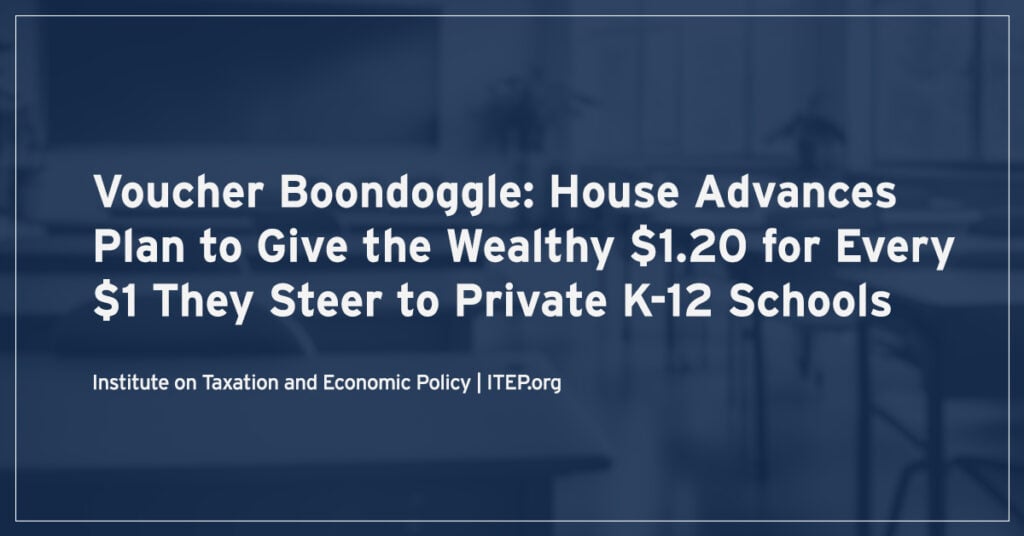
The U.S. House Ways & Means Committee has advanced a new school voucher bill. H.R. 9462—the Educational Choice for Children Act of 2024—would create an unprecedented tax incentive designed to fund private, mostly religious, K-12 schools.
Expanded Child Tax Credit is Key to Reducing Child Poverty, New Census Data Illustrate
September 10, 2024 • By Jon Whiten
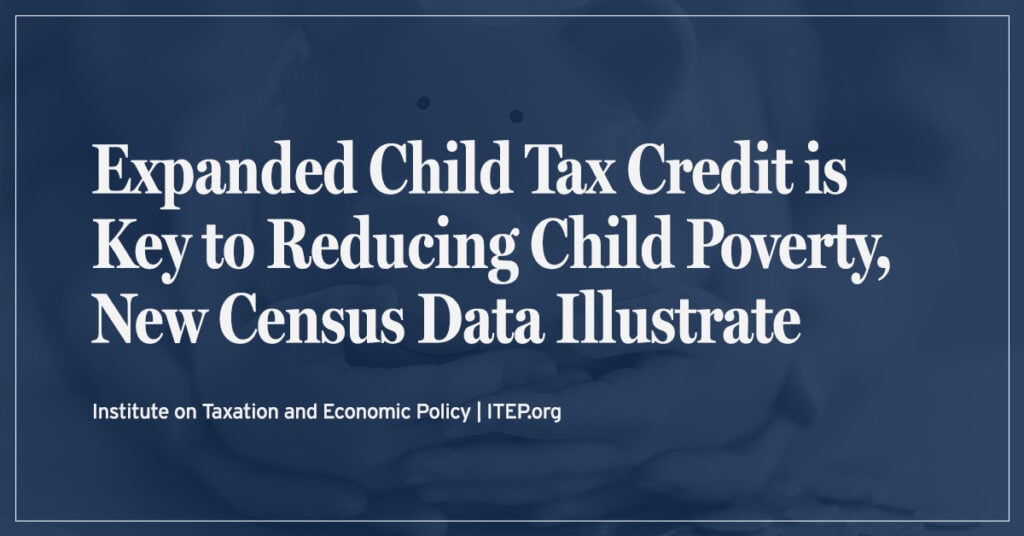
From 2021-2023, child poverty has more than doubled from 5.2 to 13.7 percent. The latest Census data make clear that lawmakers have the tools to help millions of children and their families – and it’s beyond time they take action.
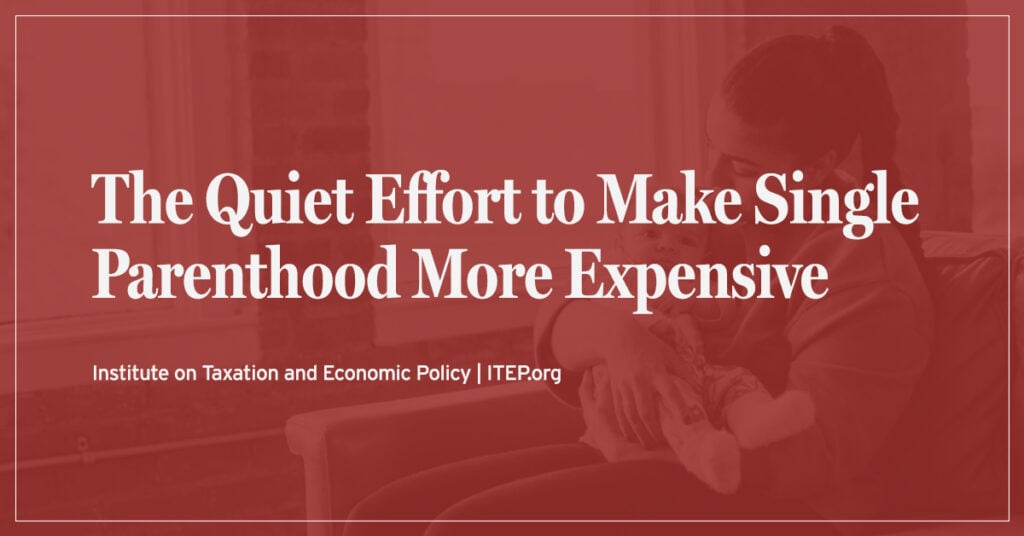
After the dust settles on this year’s election, one of the most pressing issues confronting the next Congress and President will be how to deal with the expiration of the 2017 Trump tax cuts and, more specifically, who will pay for the cost of extending some or all of those cuts. Among the more widely accepted ideas circulating on the right is to raise income taxes on single parents, more than four in five of whom are women and a disproportionate share of whom are people of color.
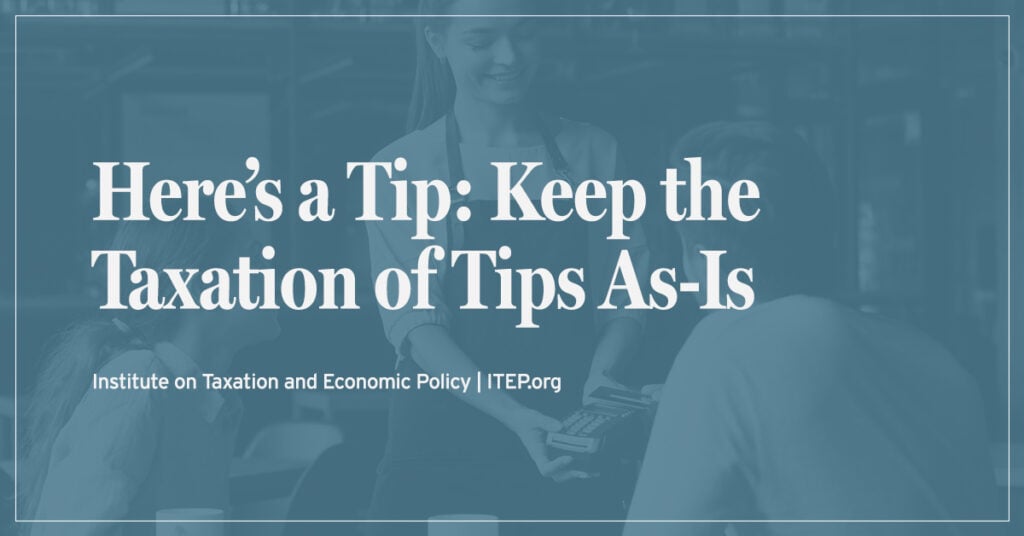
The no tax on tips idea isn't a new one, but it's always been abandoned because it's practically impossible to do without creating new avenues for tax avoidance. Despite its embrace by the candidates from both major parties, this policy idea would do little to help the roughly 4 million people who work in tipped occupations while creating a host of problems.
Tax the Wealthy and Reject Austerity for a More Just and Thriving Democracy
July 1, 2024 • By Amy Hanauer
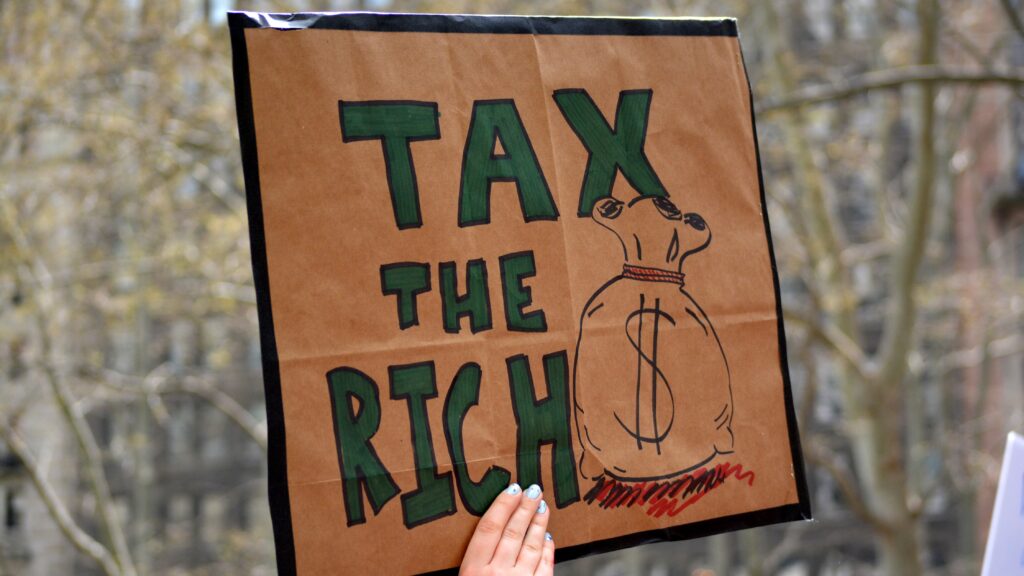
Two of the last five presidents won office over the objection of the majority of the people; California, with 65 times more people, has the same voting power in the U.S Senate as Wyoming; and the U.S. Supreme Court just permitted South Carolina lawmakers to dilute Black votes in drawing districts. These obvious flaws undermine our claim to be a strong democracy. One less appreciated but similarly undemocratic trend is our extreme inequality that supercharges the power and wealth of corporations and the uber-rich, weakens what the public sector can deliver, and often feeds on itself.
SCOTUS Rejects Expansion of Trump’s Corporate Tax Cuts, Leaves Broader Tax Questions for Another Day
June 20, 2024 • By Steve Wamhoff
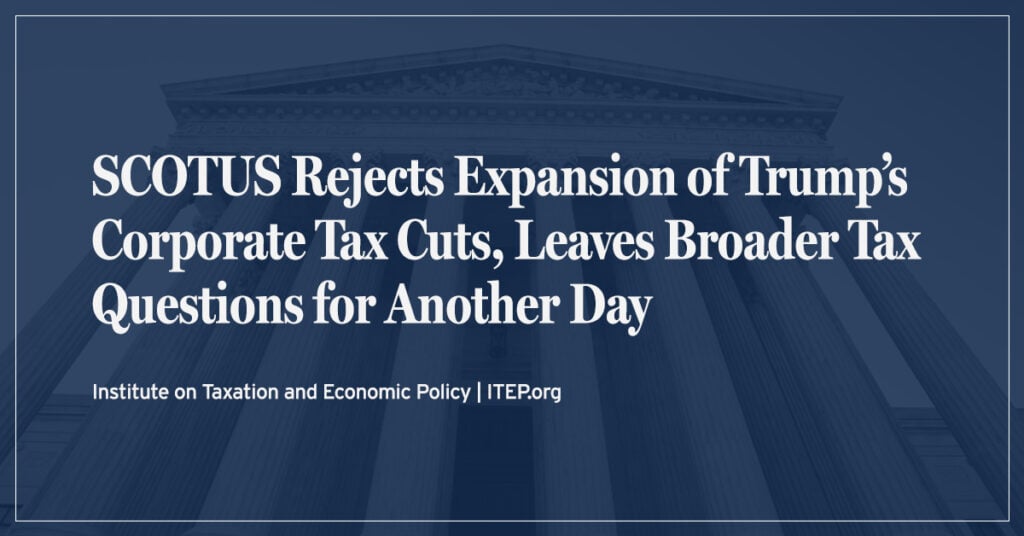
The Supreme Court matters, for tax fairness as for every other part of our lives. Whether or not we ever have a government that taxes billionaires as much as it taxes the rest of us will depend on how the Supreme Court rules in the future and who appoints justices to the Court.
States Should Opt Into IRS Direct File as the Program is Made Permanent
May 30, 2024 • By Jon Whiten
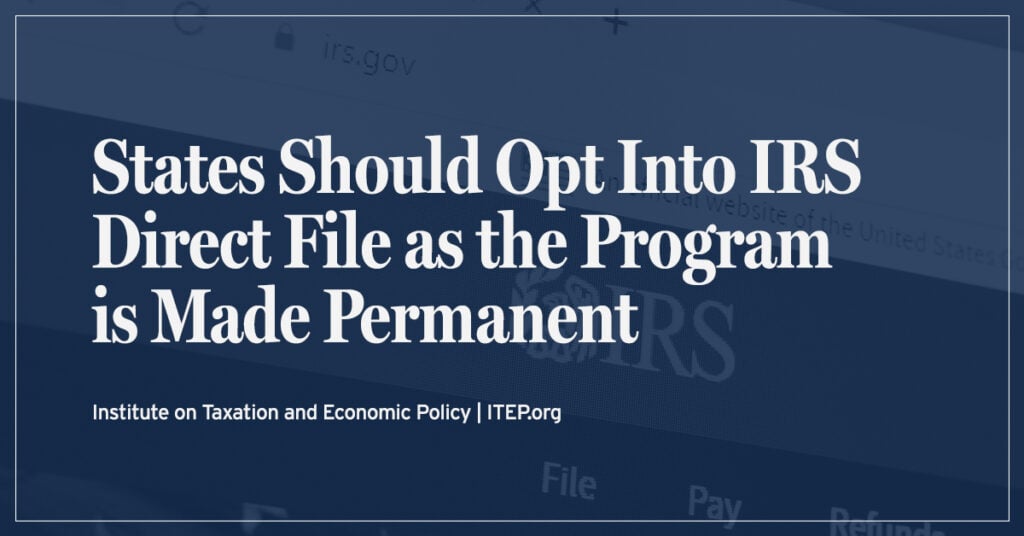
While there is plenty of room to expand Direct File at the federal level, states can take matters into their own hands and bring this benefit to their residents by opting into the program.
TurboTax Maker Puts a Pink Spin on Exploitative Financial Products
April 22, 2024 • By Amy Hanauer

This op-ed originally appeared in MSNBC Tax preparation behemoth Intuit (maker of TurboTax) recently unveiled a new campaign branding itself as a feminist company. “When it comes to the complexities of the tax code, women encounter distinct challenges,” reads a post on the company’s official blog, “and here at Intuit, we’re committed to empowering prosperity for […]
Biden Is Right: Corporate Tax Avoidance Has Big Problems That We Can Fix
April 1, 2024 • By Jon Whiten
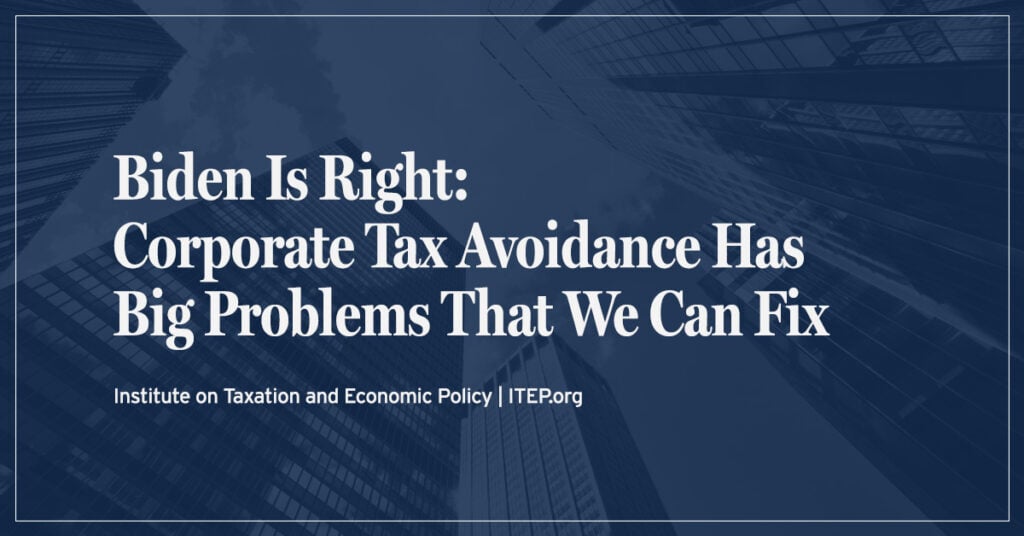
Sensible reforms to the corporate tax system can help both crack down on corporate tax avoidance and ensure companies that are flourishing are paying their share for the public infrastructure that forms the building blocks of their success.
Congress Should Enhance – Not Diminish – IRS Capability this Tax Season
March 28, 2024 • By Joe Hughes
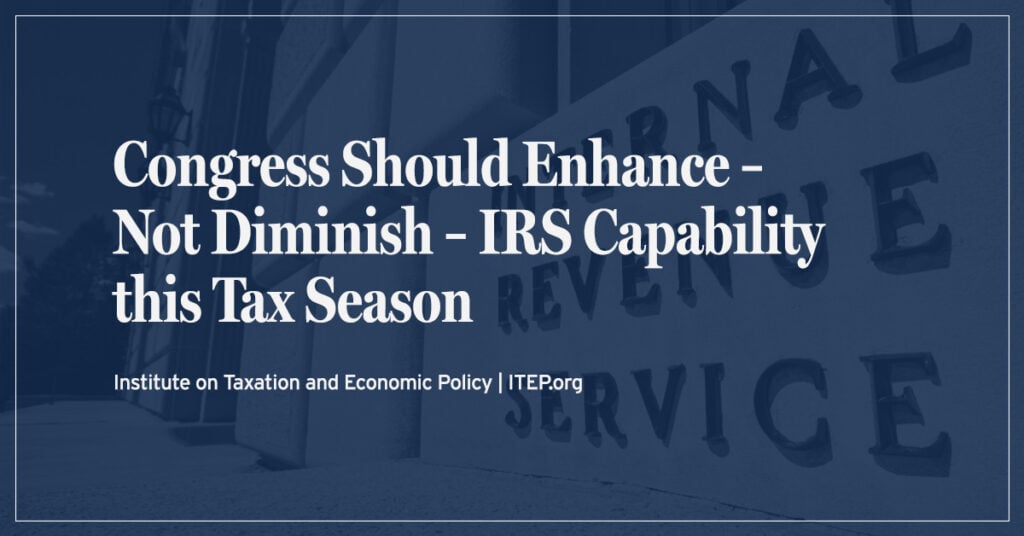
While funding cuts to the IRS may have been necessary as a political matter to avoid harmful agency shutdowns, they are severely misguided as a policy matter. By all serious accounts, cuts to IRS funding increase the deficit due to uncollected taxes – mostly from big businesses and the very wealthy.
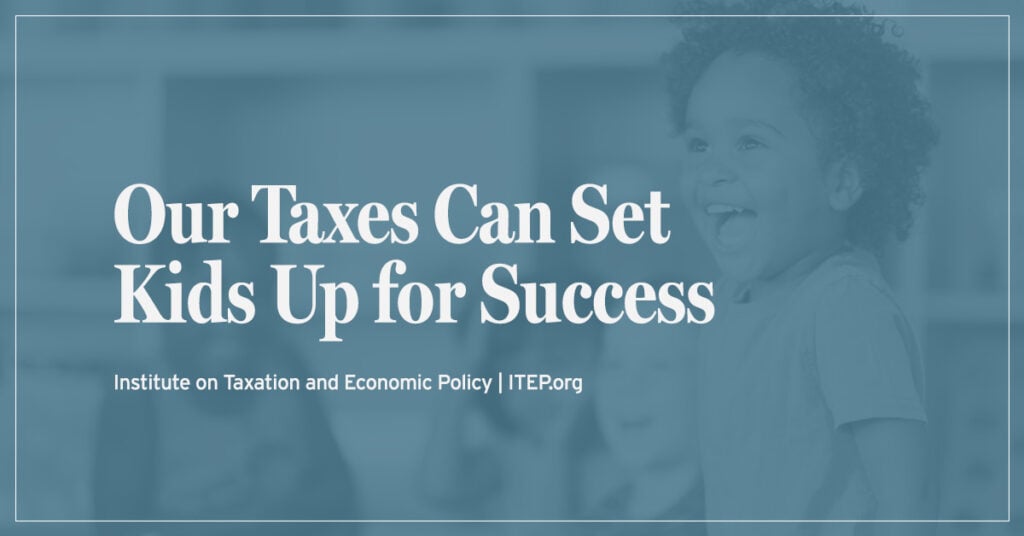
Every child deserves the opportunity to succeed in society – and tax policy has a huge role to play in making that happen. Better tax policy can help prepare our young children with skills to become successful and thriving adults.
The Estate Tax Should Help to Level the Playing Field. Instead it’s Letting the Rich Get Richer.
March 26, 2024 • By Amy Hanauer

The federal estate tax should ensure that family dynasties who’ve amassed enormous fortunes pay their fair share in taxes. But because policymakers have repeatedly doubled and tripled the immense sums that can be passed on before the tax kicks in, the estate tax today affects almost no one.

President Biden discussed multiple tax proposals during the State of the Union address to Congress. Several of these proposals appeared in the budget plan he submitted to Congress last year, but at least two appear to be new proposals. Raise Corporate Tax Rate from 21 Percent to 28 Percent 10-Year Revenue Impact in President’s Previous […]
IRS Commissioner, New GAO Report Highlight Importance of Proper IRS Funding
February 16, 2024 • By Joe Hughes
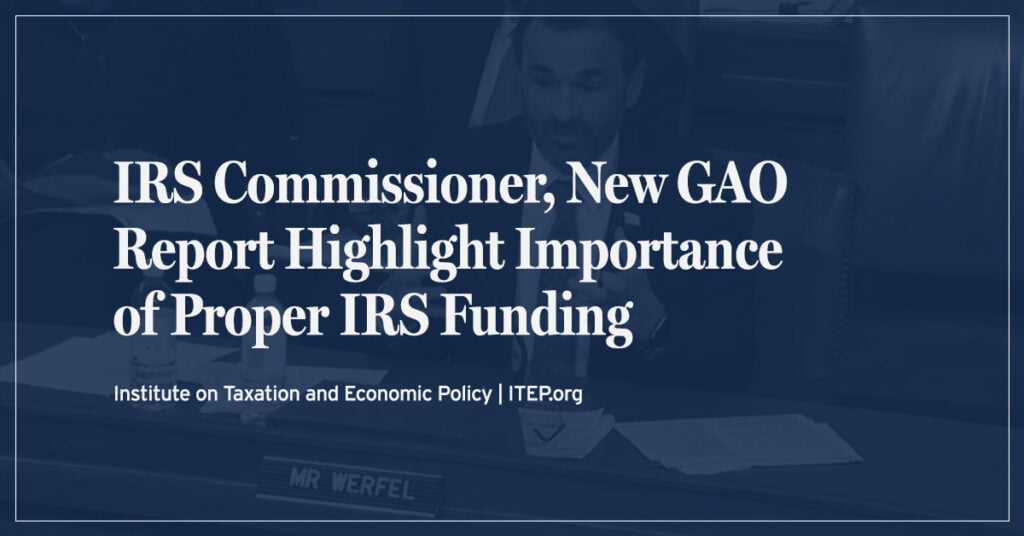
A new GAO report and Commissioner Werfel’s testimony highlight the value and necessity of a well-funded and functioning IRS. Most families and businesses do their best to pay taxes accurately and on time. The nation benefits from a modern revenue agency that can make this process as easy and simple as possible and identify complex tax schemes that deprive the country of revenues.

It doesn’t matter if someone with a family income of $800,000 per year thinks they aren’t rich because they can’t quit their jobs and retire to a luxury home on the beach in Malibu. They can call themselves what they want. The point is that they are richer than 99 percent of the population and can afford to pay more.
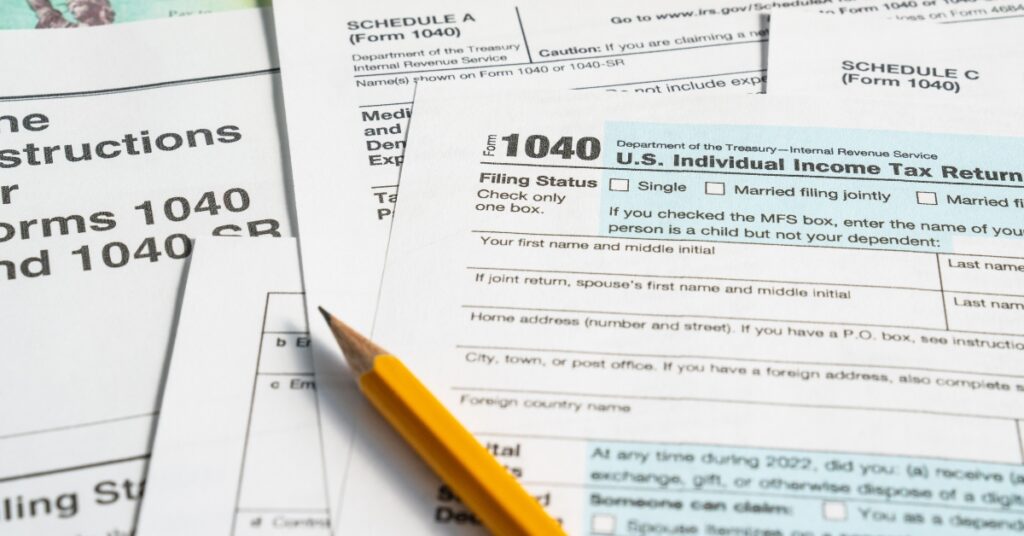
The IRS Direct File pilot is currently open to eligible taxpayers here. Millions of American families have now received their W-2s for 2023, signaling the start to a new tax filing season. The IRS has set January 29 as the first date that people can file their tax returns for the previous year, and the […]
Everything You Need to Know About Proposals to Better Tax Billionaires
December 21, 2023 • By Steve Wamhoff

Tax policy may not be on the minds of most Americans during the final weeks of 2023, but billionaires with an eye on their own tax bills have been riveted by developments in D.C.
With the Moore vs. United States Case, the Supreme Court Could Unleash Chaos on Our Tax System
December 1, 2023 • By Steve Wamhoff

On Tuesday, the U.S. Supreme Court will begin hearing oral arguments in Moore vs. United States, which could become the most important tax case in a century. A broad ruling could destabilize our tax system, enrich many profitable corporations, and widen existing economic and racial inequalities.
The Latest Convoluted Arguments in Favor of Rich People Not Paying Taxes
November 13, 2023 • By Steve Wamhoff
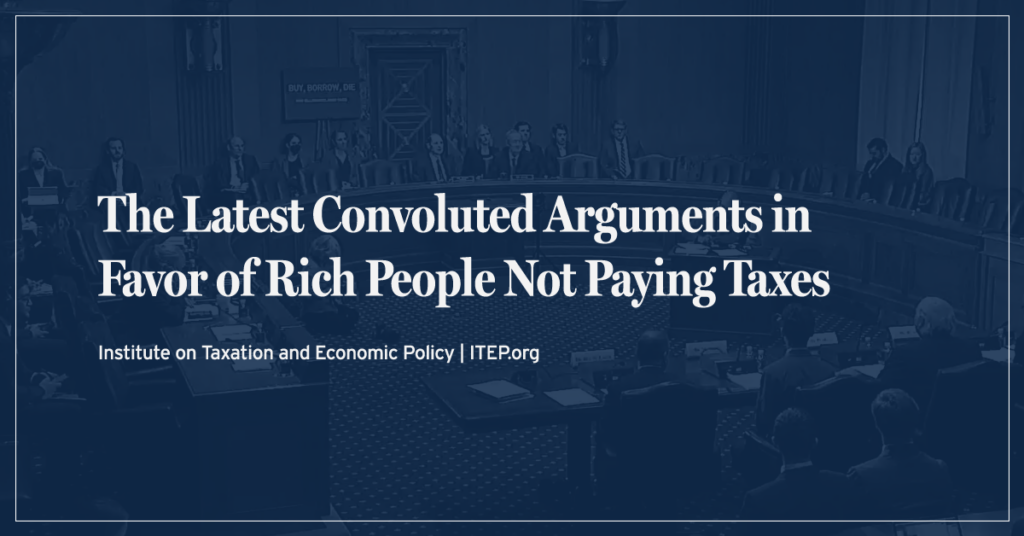
Two Senate hearings last week focused on how the richest Americans are avoiding and evading taxes in ways that ordinary Americans could hardly imagine. All the experts brought in to testify seemed to agree that the House GOP’s recent tactic of “paying for” a spending proposal by cutting IRS funding makes no sense because it […]
Year-End Tax Package Must Prioritize Children and Families Over Corporations and Private Equity
November 8, 2023 • By Joe Hughes

While Congress considers extending expired tax provisions, it should first and foremost focus on expanding the Child Tax Credit, a policy with a proven track record of helping families and children.

Workers of all races and ethnicities are confronting a tax code that puts them at a disadvantage relative to those with immense wealth, and people of color and women are among those most likely to be negatively impacted by this injustice.
Free Tax Filing Option from the IRS Would Benefit People of Color, Contrary to Corporate Warnings
October 30, 2023 • By Brakeyshia Samms

There's a patchwork of programs and preparers for people of color to turn to when filing taxes, and most come from corporations that profit from providing a service that the government could provide more effectively and efficiently for free. The Direct File program can change that and is a great step forward in the IRS’ work addressing racism in the tax code.
